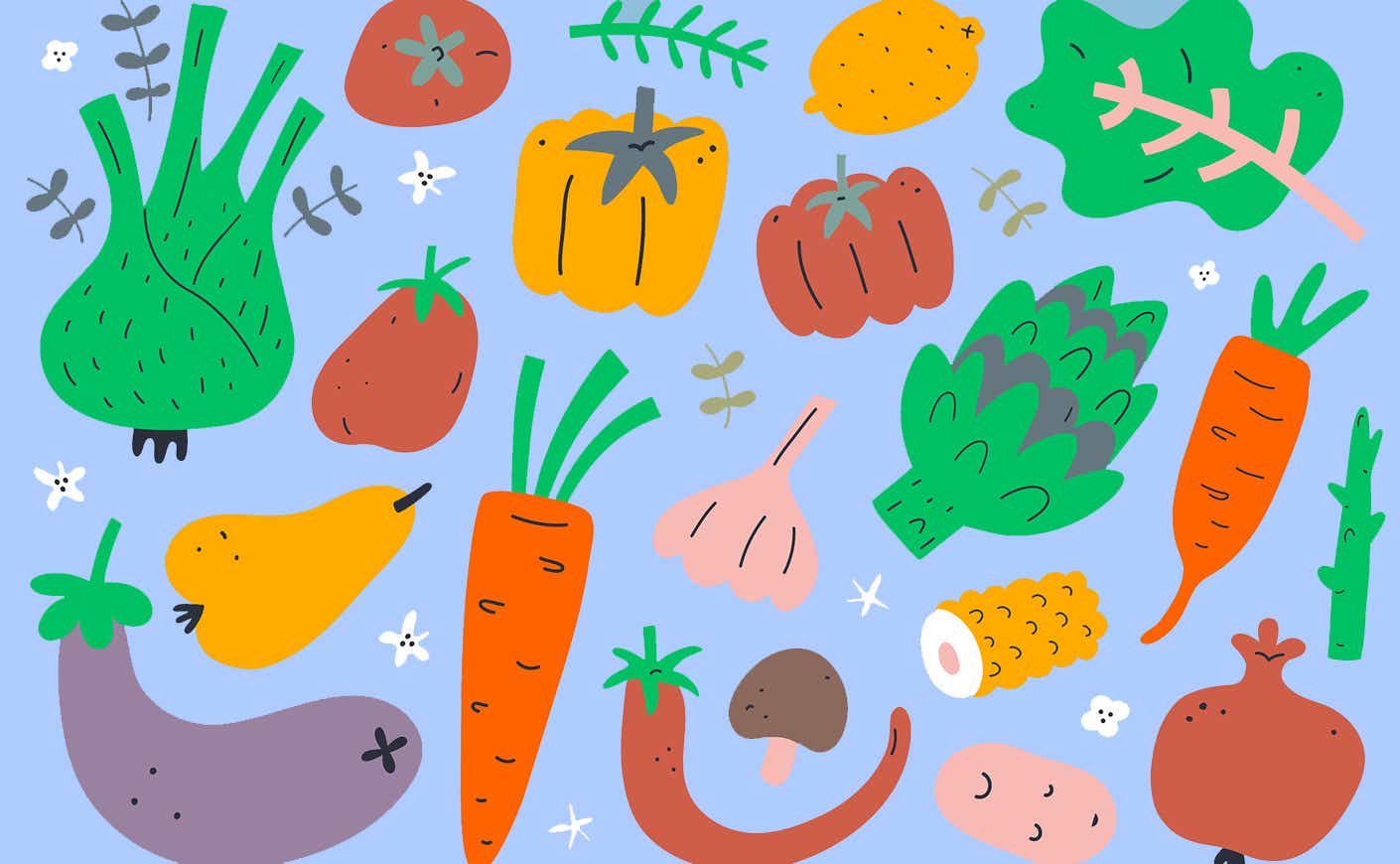The Covid-19 pandemic has exposed the danger that diet-related illnesses — like obesity and diabetes — pose to Americans every day. Per one study, people who are obese are 48 percent more likely to die from Covid-19. In America, around two out of three adults are overweight or obese. Plus, people of color are disproportionately impacted.
So what’s behind the obesity epidemic? Our food system, per food journalist Mark Bittman. “It produces too much of the wrong foods and not enough of the right ones, and it limits access to really good food to those people who have money and time,” he told us.
Bittman, author of classics like How to Cook Everything and Dinner for Everyone, talked to KCM about his latest book release, Animal, Vegetable, Junk. He explores how America got here — and what we need to do going forward to ensure healthy and delicious food for all.
Katie Couric Media: With your title, Animal, Vegetable, Junk, what were you hoping to capture?
Mark Bittman: The sense that in nature there are two food groups: animals and vegetables. We’ve added a third. And, as the word “junk” implies, it’s not a good thing.
What’s exactly wrong with the American food system?
In a nutshell: It produces too much of the wrong foods and not enough of the right ones, and it limits access to really good food to those people who have money and time. This has starkly negative effects on our diets and health, on our land, air, and water, on the climate, and on elements as diverse as inequality, child development, and much more.
Meanwhile, this book covers a wide swath of American history. Which time period and what events are most responsible for spawning our modern, problematic system?
You can blame “agriculture,” “colonialism,” “imperialism,” or “capitalism.” The time period that should most concern us is now, and no “ism” is that important.
What’s important is that we act to try to fix things. Why? Until now, we — humans — didn’t have the knowledge or tools we needed to live together peacefully, to feed ourselves well, to prosper and nurture the earth.
We do now: But it’s a matter of creating a political system that prioritizes these things. This starts with improving everyone’s access to good food.
Who created the false narratives many Americans live under about food?
Very simple: Junk food marketers. Where has the government gone wrong with its labels and various recommendations? It hasn’t been objective enough. That is, it’s allowed itself to be swayed by pressure from industry and has failed to adequately protect citizens.
Which countries are doing this better than us? Chile, Mexico, France, England, and a dozen others. We lag behind.
You’re a food veteran who’s been in the spotlight for a while. In your research, what’s the most surprising fact about our food systems that even surprised you?
I think the statistic that 60% of our calories come from ultra-processed food — junk — is the scariest thing to me. But what surprises me most is that there are people who will argue against guaranteeing equal access to good food for all.
We’ve seen many moving parts of the meat industry come under fire during the pandemic. Moving forward, what needs to change about how food workers are often treated in the U.S?
Well, to start, you have to raise the minimum wage to $20 an hour. (I think $15 per hour is a foregone conclusion, which is great, so let’s look at the next hurdle.) We also need to get rid of the ridiculous notion of tipped workers; no one should have to depend on customers’ kindness, guilt, or whatever to make a living. Third, OSHA laws should be strengthened and enforced for agricultural and other food workers. That would be a good start.
What are the main reasons our food system is contributing to climate change?
The raising of animals in confinement. That’s number one. Rainforest destruction and the failure to care for soil are also important.
Near the end of the book, you start looking at solutions to fixing our food systems. What are some solutions that you disagree with?
Technology has a role, of course, but it isn’t our savior. Fake food is still ultra-processed food. We need to enroll technology not in increasing yield and profits but in producing more good, healthy food, for more people.
Which solutions do you believe could make a big difference in changing how Americans eat?
The fastest, most urgent changes: Somehow restrict the marketing and availability of junk food, especially to and for children; increase access to real food, especially fruits and vegetables; put land in the hands of people who want to farm it well. All of these would make huge differences, quickly.
Reported by staff writer Amanda Svachula.
Products you buy through our links might earn us a commission.









